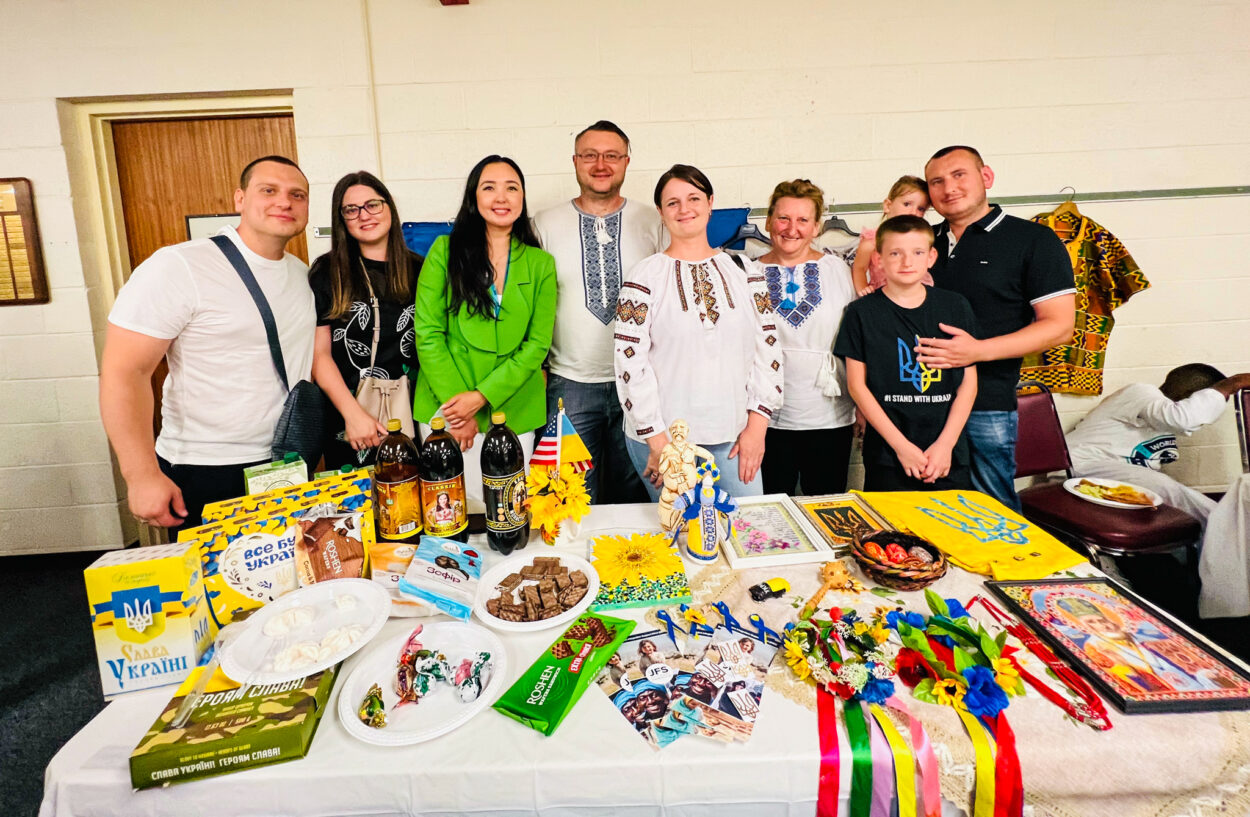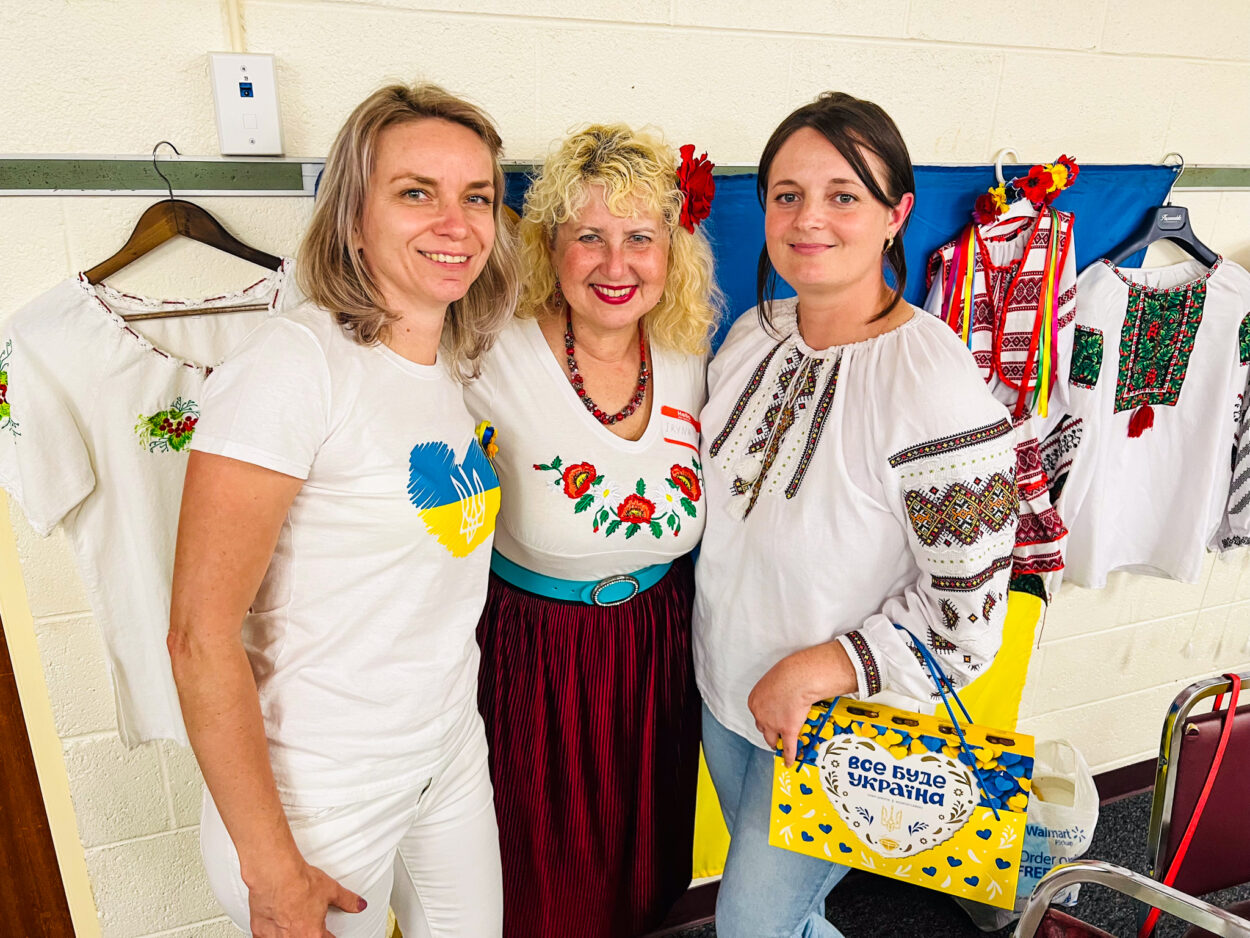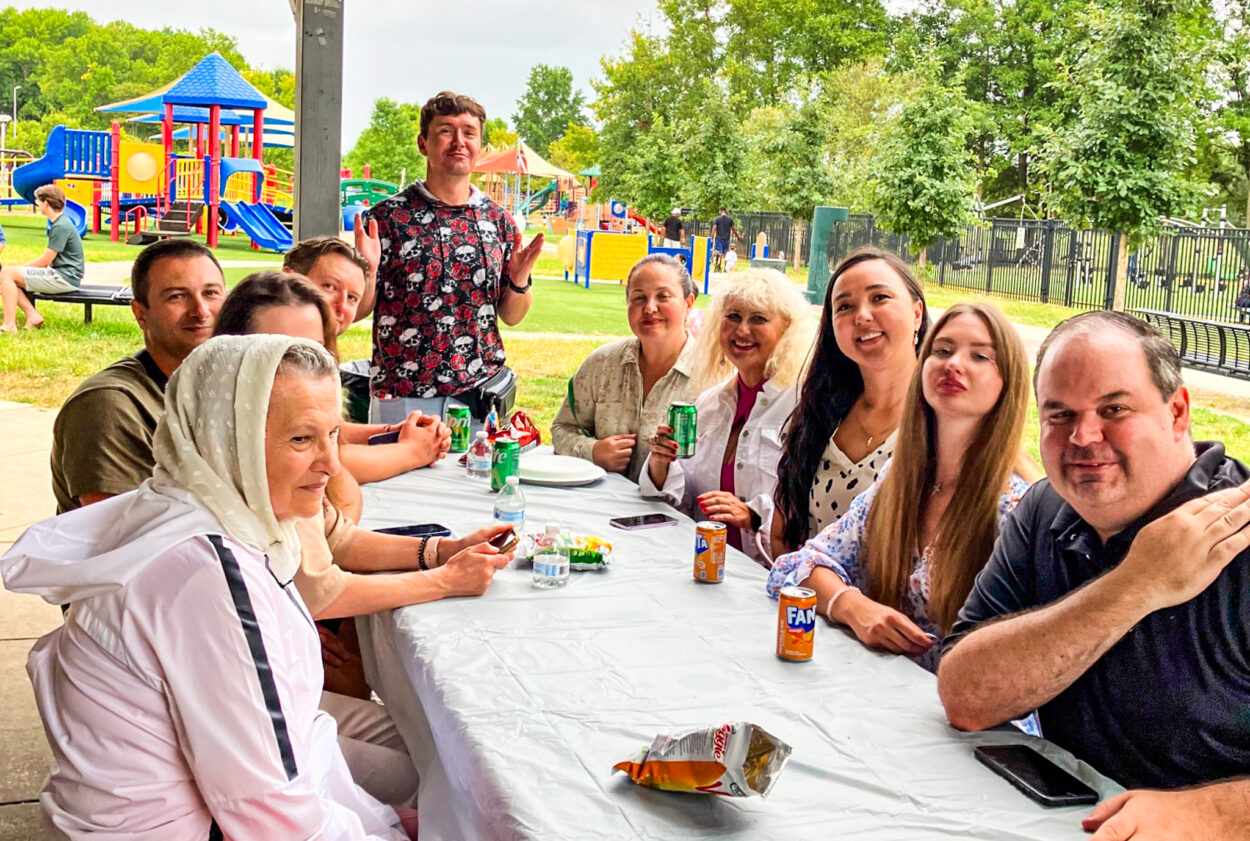Welcoming Ukrainian Refugees to Your Community
Written by: Yulia Watters, Licensed Marriage and Family Therapist, Owner of Finist and the Owl, JFS Volunteer
The war that continues to ravage the country of Ukraine has led to the massive displacement experienced by a multitude of Ukrainian families. Who are these families? What do we know about their culture? How we can help Ukrainians become accustomed to life in the US and become integrated into our communities?

- How many Ukrainians are in the US? The US, so far, has welcomed about 2,000 Ukrainian citizens (Statista, 2023). The displaced individuals are mostly women, around 45 years old, with an average of 2.4 people per household.
- What language do Ukrainians speak? Ukrainian people can speak Ukrainian, Russian, or both, depending on their geographical location in Ukraine, as well as on their age (people who grew up during the USSR will tend to know Russian, since it was mandatory at the time).
- What countries border Ukraine? The country borders Belarus to the north; Poland, Slovakia, and Hungary to the west; Moldova and Romania to the southwest; and Russia to the east. The total geographic area of Ukraine is 233,100 square miles, just a little smaller than the State of Texas
- What program helps Ukrainian Refugees arrive in the US? Uniting for Ukraine is a program developed by the Biden Administration which allows Ukrainians a temporary stay for up to two years in the US. Ukrainian refugees must have a US sponsor who commits to taking full financial responsibility for the duration of their stay in the US. For many Ukrainians and US citizens, it means living with their distant relatives or acquaintances; some supporters are volunteers who responded and welcomed people whom they might have met for the first time in their lives.
- What is the immigration status of Ukrainian refugees in the US? The social status of Ukrainian refugees is not always clear since refugee status is only active for two years in the US. Some Ukrainians are not planning on becoming permanent residents, which makes the adaptation much more difficult.

- What is the demographic makeup of Ukrainian families that were displaced? The UNHCR reports a majority of Ukrainians (80%) is planning to return home as soon as possible. Approximately 70% have completed college degrees and about 65% were employed or self-employed in Ukraine. Most of the Ukrainian refugees are women since men are not allowed to leave the country due to the mandatory military draft.
- What are the most common stressors experienced by the Ukrainian refugees? It is important to consider that only a minority of Ukrainian refugees could afford an expensive trip to the US. For economic and cultural reasons, most of the displacement happened either within Ukraine itself, to Russia (due to the fact that there a lot of family ties between the two nations), and to Eastern Europe (because of the geographic proximity). Therefore, people that were able to come to the US were relatively affluent in Ukraine, holding good jobs and earning good salaries. By choosing to come to America, they often lost their privileged positions and had to leave behind their life’s work and all of their possessions obtained as a result of that work. In addition to the traumatic effects of war or being in a war zone, one should not underestimate yet another traumatic effect of resettlement, when refugees are facing a whole new world with a completely new values, traditions, and way of living. The cultural shock and the feeling of uncertainty that accompany any new situation contribute to the increase stress among the newcomers.
- What additional factors contribute to adapting to life in the US? Difficulties connected to the differences in cultural and social expectations between American and Ukrainian societies and among refugees and their sponsors often contribute to additional issues pertaining to adaptation and the acculturation process. Differences might evolve around dissimilar dietary habits, expectations pertaining to the household chores and daily routines, views on education, and values around money spending. These issues, compounded with longing for home, for familiar taste and smells can make the adjustment to living in the US challenging.
- How can I help? Even though the war made it difficult for many to remain in their homes; it does not mean that refugees are necessarily looking forward to changing their values or outlook on life. One approach that can go a long way in assisting refugees with adapting to their new living circumstances is by adopting a position of “respectful curiosity”, providing space to allow Ukrainian refugees the opportunity to tell you their stories. You can learn that even small differences, unbeknownst to you, can have a major impact on living in a strange new land, and a small gesture can touch someone’s heart in a very impactful way. By asking more questions you can open door for new understanding and new connection, which can be a start of a fulfilling relationship, and at the same time helping the newcomers in adjusting to their new way of life.
- How can I assist? My first encounter with Ukrainian refugees happened through Jewish Family Services (JFS) of Delaware. While
 none of the Ukrainians coming to Delaware were Jewish, the organization’s mission is to assist any person experiencing displacement. A JFS program manager contacted me asking for my help, as it appeared that I am the only Russian-speaking licensed family therapist in Delaware. Since the beginning of the war, the thought that any human being is living through a situation of deprivation, fear, and imminent threat of death never left me, pushing me to find ways to be involved in helping the civilian population that has to face the war on a daily basis, personally or through their loved ones. If you know of any Ukrainian person who would like to have a psychological assistance of a Russian-speaking therapist, I am here to help. In addition, my dream is to provide a safe space for a cultural connection among people from different walks of life, religion affiliations, and sexual orientations. With this idea in mind, I opened doors of my independent bookstore, Finist and the Owl, on April 22, 2023. The store has books in English, French, and Russian, and several rooms set up for children of different ages as well as some books for adults. I am hoping that this artistic space can provide solace and nourish souls for people facing the necessity to flee the country they love and for their generous hosts. Everyone is welcome to the store and I hope the experience will be regenerating.
none of the Ukrainians coming to Delaware were Jewish, the organization’s mission is to assist any person experiencing displacement. A JFS program manager contacted me asking for my help, as it appeared that I am the only Russian-speaking licensed family therapist in Delaware. Since the beginning of the war, the thought that any human being is living through a situation of deprivation, fear, and imminent threat of death never left me, pushing me to find ways to be involved in helping the civilian population that has to face the war on a daily basis, personally or through their loved ones. If you know of any Ukrainian person who would like to have a psychological assistance of a Russian-speaking therapist, I am here to help. In addition, my dream is to provide a safe space for a cultural connection among people from different walks of life, religion affiliations, and sexual orientations. With this idea in mind, I opened doors of my independent bookstore, Finist and the Owl, on April 22, 2023. The store has books in English, French, and Russian, and several rooms set up for children of different ages as well as some books for adults. I am hoping that this artistic space can provide solace and nourish souls for people facing the necessity to flee the country they love and for their generous hosts. Everyone is welcome to the store and I hope the experience will be regenerating.
If you would like to volunteer with JFS Delaware and make a difference in the lives of refugees, click here. You can also donate to JFS Delaware here.

